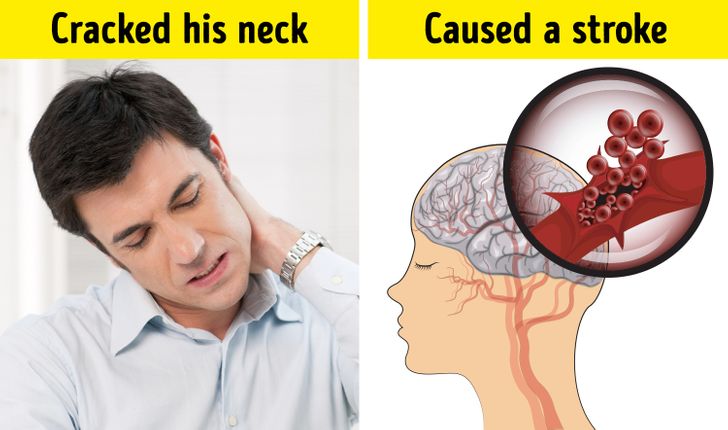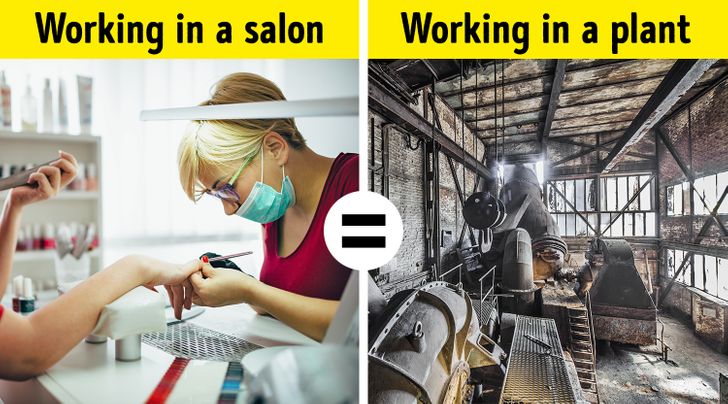If we want to have a long and healthy life, we have to be aware of the latest scientific research in medicine. That’s because the result of such studies can greatly change our knowledge of medicine. For example, experts have recently come to the conclusion that sometimes it’s more healthy to sit with a bent back than with a straight one. Additionally, working at a nail salon is just as harmful as working at an oil refinery.
We have learned about scientific discoveries that can have a positive influence on our lifestyle.
1. Cracking your neck is very dangerous for your health.

Doctors warn us that if you crack your neck a lot when trying to stretch it, you can have really serious health issues. Doctors refer to the case that recently happened to 28-year-old Josh Hader. He had a sore neck and in order to improve the situation, he started stretching his neck and tilting it from side to side. Suddenly, he heard a pop and Josh felt the left side of his body completely freeze. He also felt weak, began hiccuping non-stop, and had problems with coordination and eyesight.
In the hospital, doctors discovered that he had a stroke: when stretching his neck, John tore the arteries that went to the bone of the neck where the neck joins the skull at the base of the brain. He spent several days in the hospital. Today, he is at home but still has some problems like impaired coordination. It’s also interesting that he kept hiccuping for 2 weeks after he had the stroke.
2. Working at a nail salon is just about as harmful as working at an oil refinery.

Scientists at the University of Colorado spent 1.5 years studying the air quality of 6 different nail salons in Colorado state. They measured the concentration levels of formaldehyde as well as benzene, toluene, ethylbenzene, and xylene. It was found that in all 6 nail salons, the concentration level of these toxic elements was many times higher than normal which increases the risk of developing nasopharynx cancer, leukemia, and other types of cancer… Show More >>>
Science, Education, Kids, Health, Science, Education, Kids, Health, Science, Education, Kids, Health, Science, Education, Kids, Health, Science, Education, Kids, Health, Science, Education, Kids, Health, Science, Education, Kids, Health, Science, Education, Kids, Health, Science, Education, Kids, Health, Science, Education, Kids, Health,

